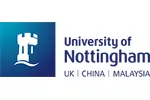

| The award | How you will study | Study duration | Course start | Domestic course fees | International course fees |
|---|---|---|---|---|---|
| MSc | Full-time, Part-time | 1 year | September | find out | find out |
| PG Cert | Full-time | 1 year | September | find out | find out |
Cancer is a subject that embraces an ever-widening range of disciplines. The MSc in Oncology is suitable both for scientists and other graduates who wish to learn more about the science as well as the practice of oncology, and for clinicians together with other health care professionals who require further training in the molecular aspects of oncology.
The course aims to:
The MSc in Oncology draws on a unique blend of scientific and clinical expertise and experience, and benefits from strong ties that exist between the clinic and laboratory within the Department of Oncology.
Course Content
This course requires you to complete the following core modules:
You will also take three optional modules, chosen from the following:
These modules are selected in consultation with the course director and are subject to approval by the Head of School.
For those individuals wishing to follow the syllabus requirements for the Part I fellowship exam of the Royal College of Radiologists, Radiation Biology is regarded as a compulsory module in year one.
For Medical Oncology candidates in a UK training post, Cancer Chemotherapy is regarded as a compulsory module in year one.
For Oncologists in training wishing to follow the core curriculum set out by The Joint Committee on Higher Medical Training, then both Site Specific Cancer Management and Oncology Procedures & Palliative Medicine are compulsory modules in year two.
Please note that all module details are subject to change.
You will also undertake a 60-credit research project conducted over five months in the laboratory of a member of faculty of the School. This module will enable you to experience contemporary research methods by designing a research programme and performing experiments, surveys, or other research activities aimed at solving a specific biomedical problem.
If you are a part-time student, you will need to provide a statement of reference from a work-based person, in the Oncology field, indicating his or her willingness to act as your local mentor / tutor.
Course Structure
The MSc in Oncology is taught on a full-time basis over one year or part-time over two years (day release format), which may be more suitable for clinicians.
You will take 120-credits worth of taught modules, as well as a 60-credit research project leading to a dissertation.
Each student is allocated a personal tutor at the beginning of the course, and regular meetings are scheduled throughout the year.
For full-time students, the majority of teaching will take place on two days of the week, with the remaining time available for self-directed learning and preparation of assessments. Part-time students will attend lecture one full day per week.
Full-time research projects commence immediately following allocation in January, initially as three days per week, becoming four days and, ultimately, five days per week following final module exams. Final exams are held in January and May.
Part-time candidates will be asked to complete and submit a project proposal during year one and will be given feedback on its suitability. If thought satisfactory, approval for the project to proceed will be given and you will be expected to have commenced it by the start of Year Two.
Course material is delivered in a variety of ways, including lectures, practical sessions, tutorials and problem-based learning sessions.
The online MSc database provides a central point for you to access your timetable, assessment results and easy access to additional module resources provided by staff. You will be expected to work independently, and as part of a group.
Each module will be assessed by means of a written examination, with certain modules containing extensive coursework components to enhance key skills.
The Research Methods module has an element of peer assessment where student members of the audience are invited to assess their colleagues performances according to set criteria and descriptors and will be written up as a scientific paper.
Modules offered on this course may be completed on an individual basis as part of your continuing professional development.
Below are some suggested courses at other providers that you may also be interested in:
If you do not meet the entry requirements for this course then consider one of these postgraduate preparation courses from another institution:
Graduate Diploma of Engineering (Industrial Automation)
Engineering Institute of Technology
Find out moreThere are 577 other courses listed from University of Nottingham. A selection of these are displayed below:
Academic English and Study Skills Preparation programmes Master's Qualifying Programme
University of Nottingham
Find out moreAdditive Manufacturing and 3D printing (Centre for Doctoral Training) PhD
University of Nottingham
Find out moreFind out more about studying in the United Kingdom